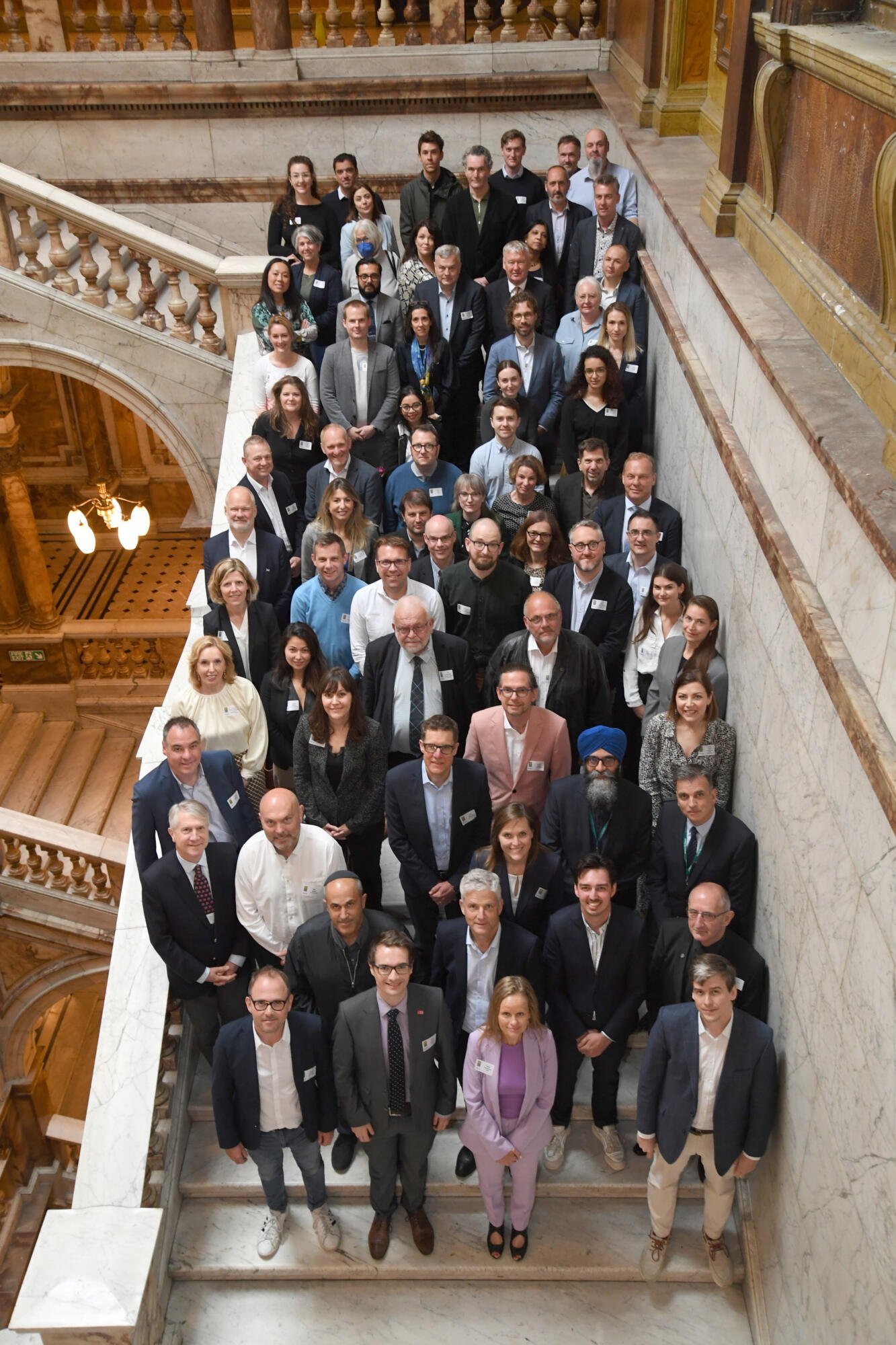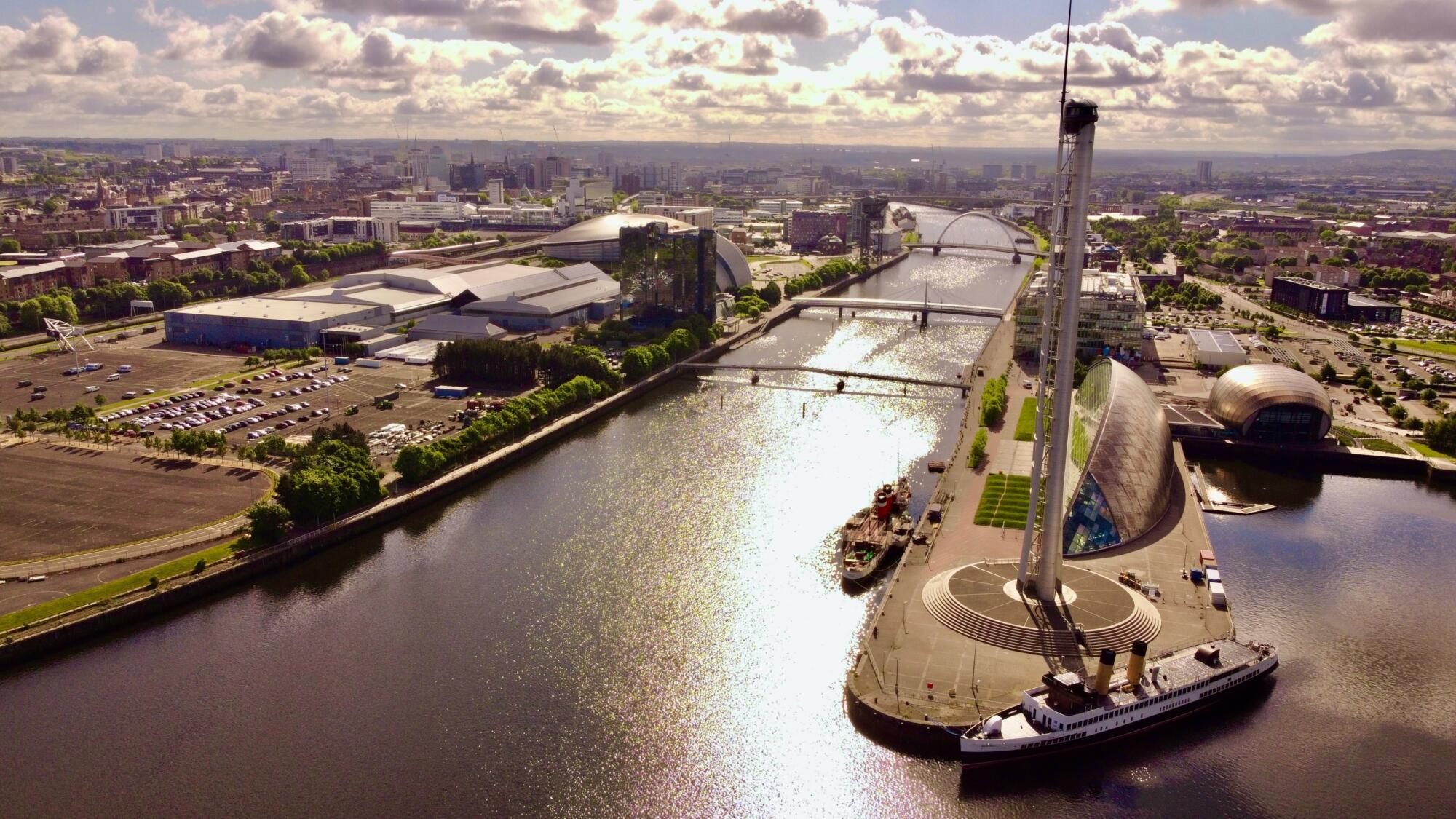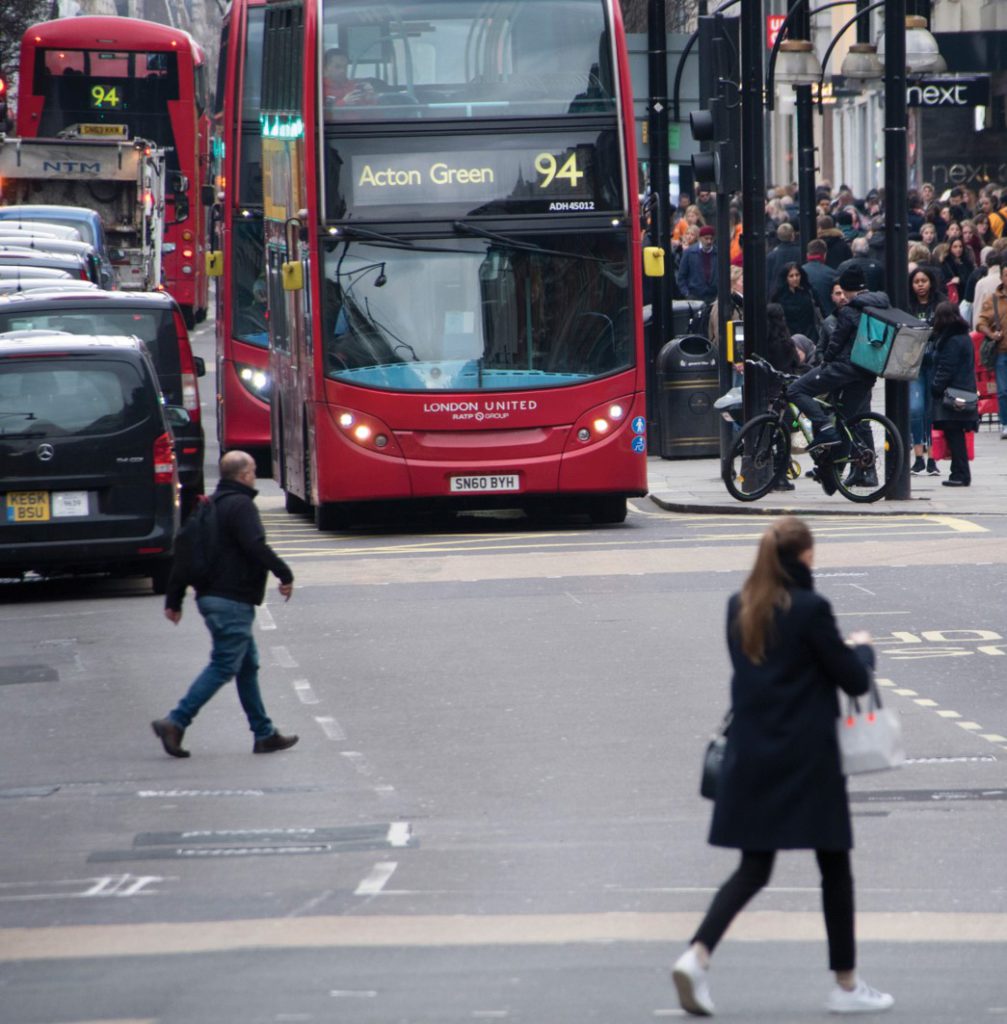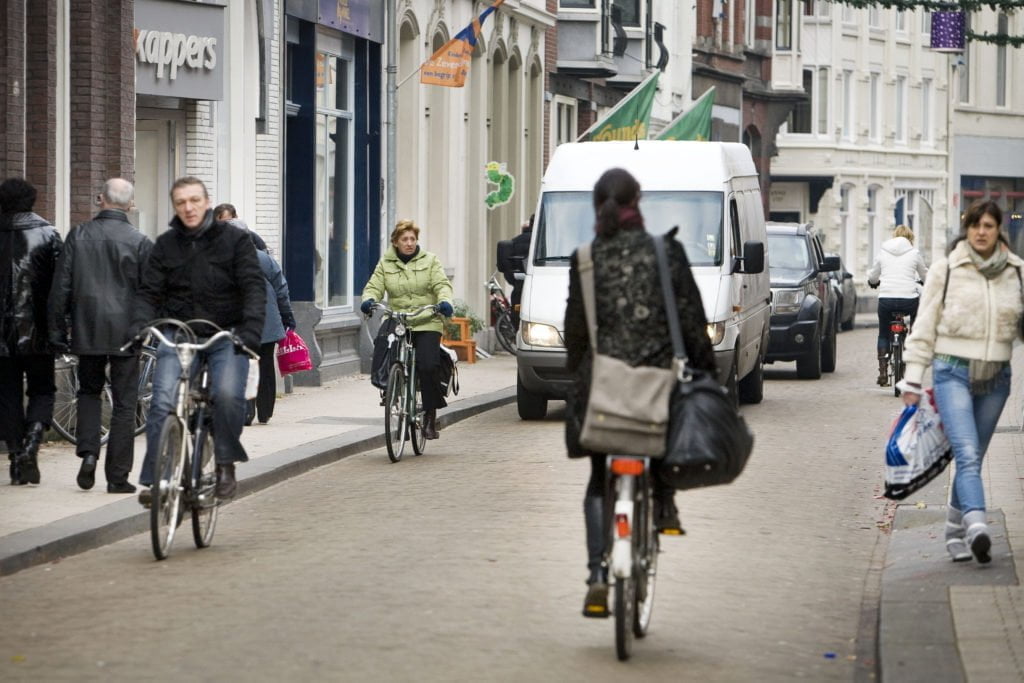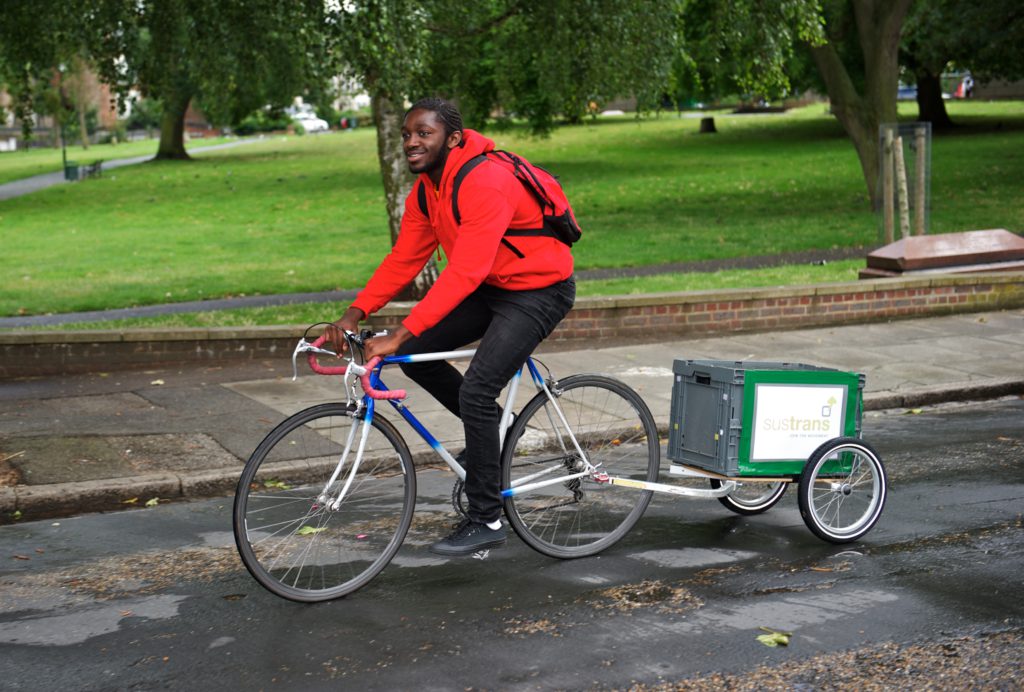All hands on deck at POLIS’ Glasgow Leadership Summit!
At POLIS and Glasgow’s Sustainable Mobility Leadership Summit, local and regional governments and transport authorities proved they are leading by example, walking the walk and not just talking the talk, and here is how.
Transport is currently responsible for around one-fifth of the global CO2 emissions, with urban passenger transport accounting for nearly a third of this.
Confronting this is the biggest challenge ever faced by urban mobility decision-makers. It requires bold action, creative thinking and (perhaps most importantly) international cooperation.
On 8 June 2022, POLIS and the city of Glasgow (POLIS member and recent host of COP26) jointly hosted a Leadership Summit to address the transition to zero-emission and the decarbonisation of transport.
From Bristol to Madrid, Leuven to London – leading politicians, practitioners, researchers, advocates and entrepreneurs from across the transport sector in the UK and the EU discussed sustainable, safe, innovative and inclusive transport.
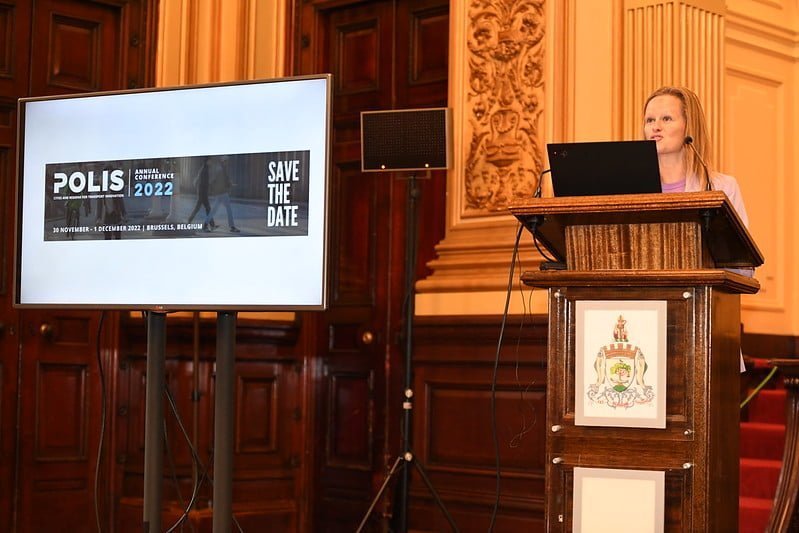
Karen Vancluysen. Photo credit: Glasgow City Council
“We need to move from ambition to action – today. 2030 is right around the corner,” said Karen Vancluysen, POLIS Secretary General. “We want to take stock of where you stand, we want to find which challenges, enablers and solutions are out there, and we want to renew and re-enforce cross-Channel collaboration on sustainable urban mobility.”
In fact, if our ambitious carbon reduction goals are to be achieved, such cooperation is not just valuable – it is indispensable. Shifting international borders may have disrupted trade, but they will not stem the rising tides nor the heat waves of the Climate Crisis.
At a time when politics is more polarised than ever, and global climate action risks stagnating, local and regional leaders came to the Summit to demonstrate their commitment to cooperation and decisive action on the ground.
“We are in the process of moving from post-industrial to post-carbon Glasgow, and we want to move even faster. Cooperation is critical, and we are proud to host this event” said Glasgow’s Deputy Lord Provost Councillor Christie Mearns.
Climate action… in action!
Cities are where we will win or lose the battle against climate change.
Wellington E. Webb (former mayor of Denver) was bang on the money when he proclaimed, ‘If the 19th century was a century of empires, and the 20th century one of nation-states, the 21st century is that of cities and mayors.’
Cities, provinces, and regions are the front line of action. From electrification to Low Emissions Zones, and bike lanes to innovative last-mile delivery, they are pioneering the next generation of transport.
28 POLIS members have been selected for the EU’s Climate Neutral Cities Mission. With many of them in attendance, this was a chance to hear their visions for the future, and how they will get there.
Three of these ‘mission cities’, Leuven (current President of POLIS), Bristol and Glasgow, joined the European Commission on a panel to share their insights.
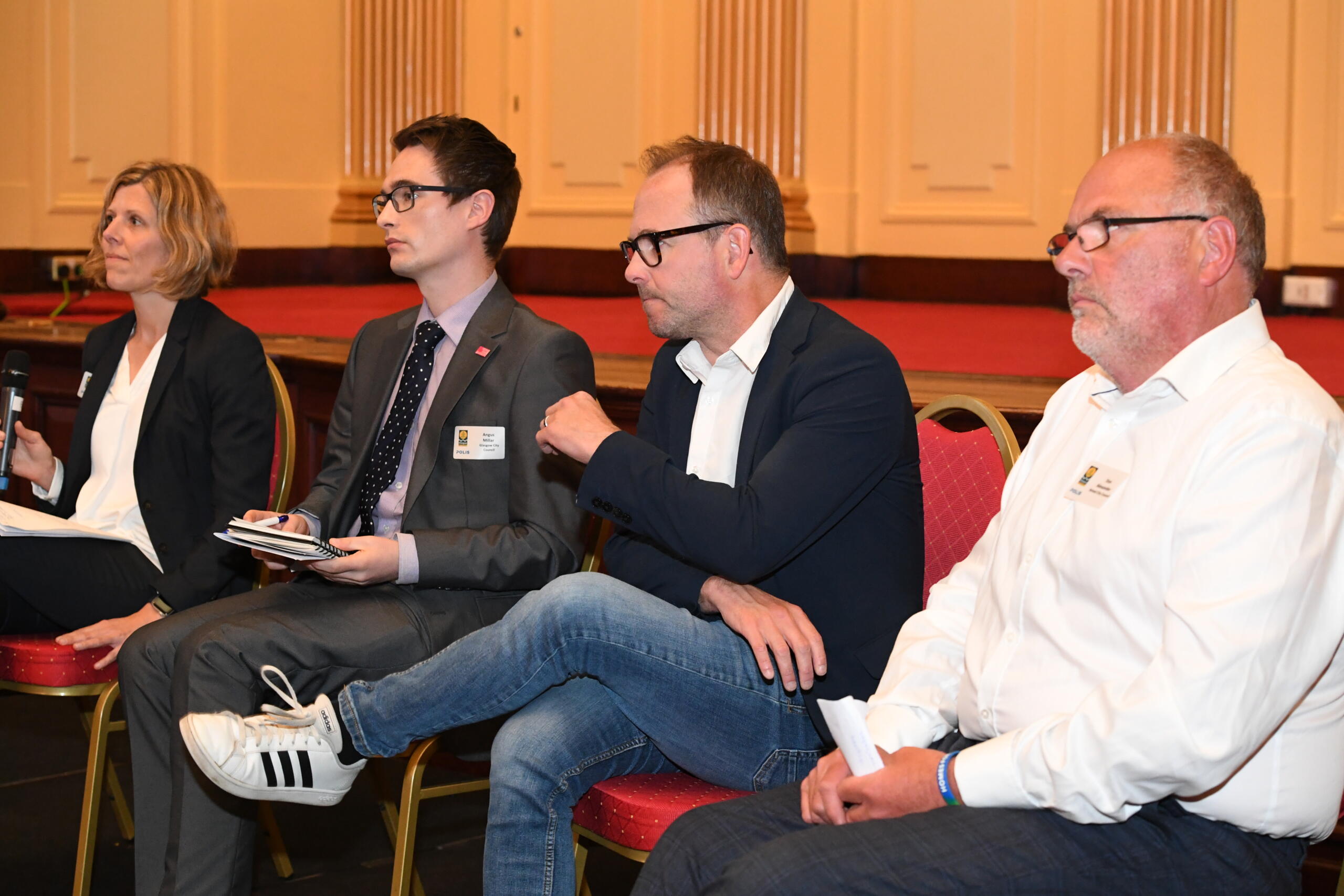
The panel discuss the Climate Neutral and Smart Cities Mission. Photo credit: Glasgow City Council
“It will be all hands on deck if we are to go further, at all levels of government – the EU, cities, start-ups, commuters… everyone!”, said Wiebke Pankauke, Deputy Head of Unit for Future Urban and Mobility Systems at DG Research & Innovation.
“It is not like we do not know what needs to be done, many of these solutions exist, but we, as cities, need to lead from the front, putting them into action”, echoed Ben Plowden, Former Director for Strategy and Network Development at Transport for London.
Cooperation and Leadership are two key goals of the Missions task force that POLIS will be launching later this year, to help members selected for the Mission reach their ambitious goals.
Empowering our cities and regions
Many actions already underway are cause for celebration, but local leaders urgently need support from national and international partners. With over half the global population now living in cities (a figure predicted to reach two-thirds by 2050), resources are stretched, and reinforcement from above is critical.
This Summit was a unique opportunity to place all levels of governance in direct conversation, from Transport Scotland to the European Investment Bank, London Councils to La Rochelle.
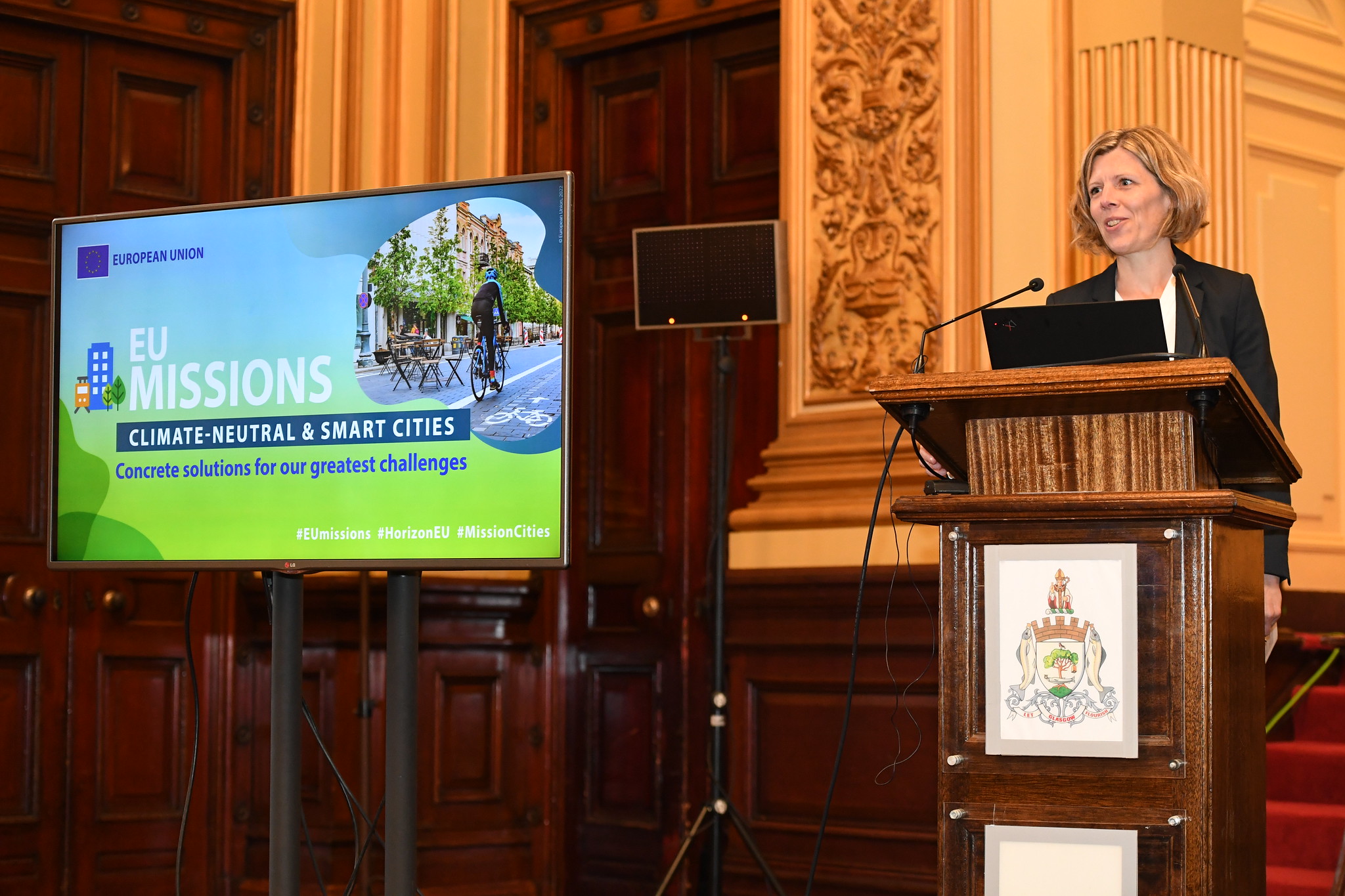
Wiebke Pankauke, Deputy Head of Unit for Future Urban and Mobility Systems at DG Research & Innovation, presents the Mission. Photo credit: Glasgow City Council
“There are many barriers to investment – technical, political and financial – but we, at the European Investment Bank, are eager to support our local authorities in their ambitions,” said Werner Schmidt, Head of the Urban & Territorial Development Department and the Joint Assistance to Support Projects in European Regions (JASPERS) at the EIB, sharing key insights on how to accelerate investment opportunities in cities.
Such multi-level collaboration is critical as we looked forward to COP27 exploring what needs to be on the table in Sharm el-Sheikh later this year, in November. When it comes to COP, national and international politicians lead the discussions, but it is critical to ensure local and regional governments also have a seat at the table.
As Michael Aherne, Head of Transport Development Division for National Transport Authority Ireland, pointed out, “It is when you get to the local level that you realise the real impacts of our actions, what really works, and what does not.”
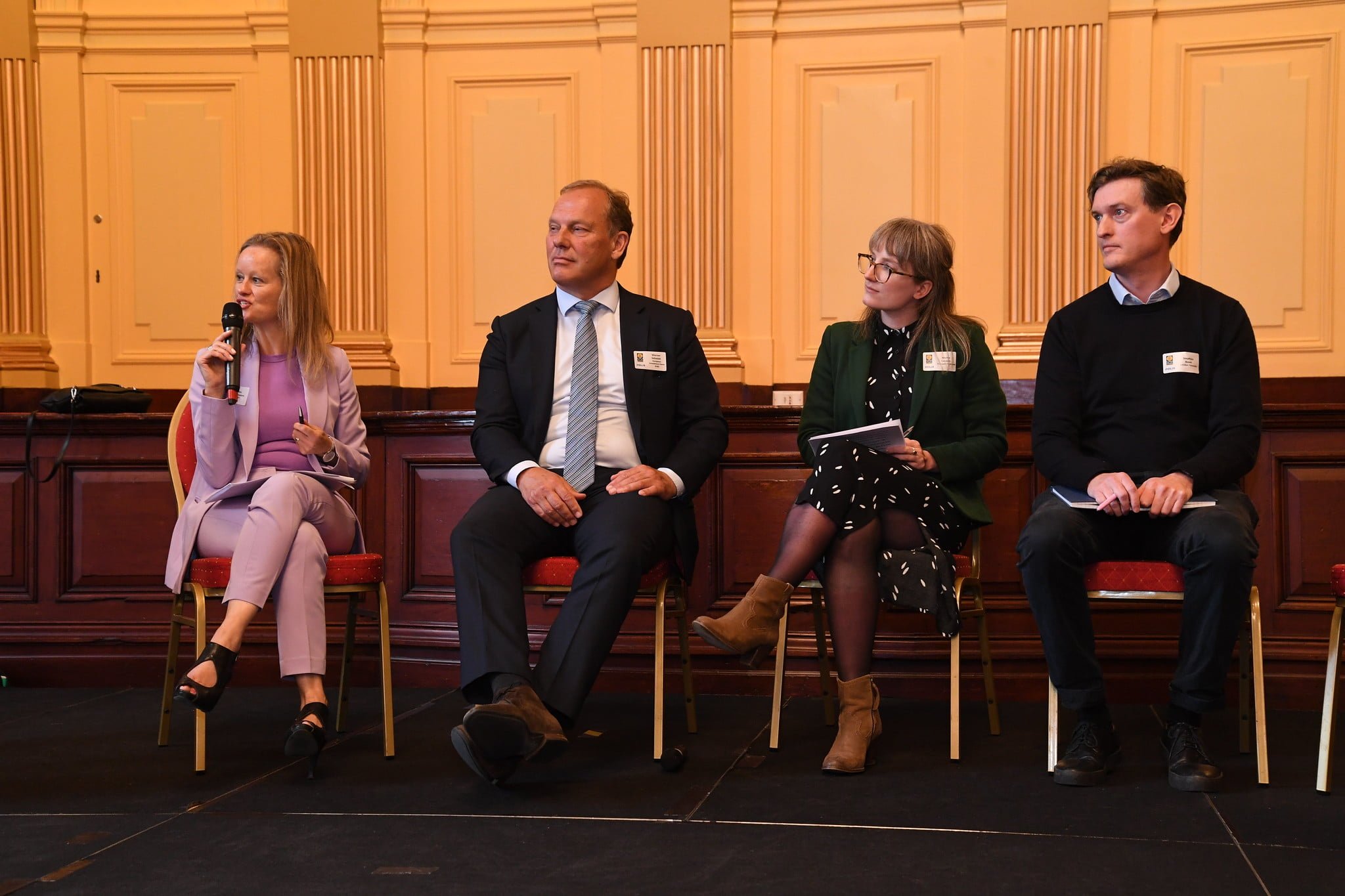
The panel discusses financing sustainable mobility and the solutions at hand. Photo credit: Glasgow City Council
The road to recovery and resilience
Bouncing back from COVID-19 was also high on the agenda. As the saying goes, “never waste a crisis”; and in Glasgow, we certainly did not.
This panel was perhaps one of the most unique forums for cross-sector dialogue. Where else would you find EMT Madrid, Highlands and Islands Transport (HiTrans), SUSTRANS and leading academics on the same panel?
Urban transport has been one of the most disrupted sectors of the pandemic, with lockdown measures slashing public transport ridership by as much as 80%–90%. However, as we (hopefully) emerge from the pandemic, we are seeing the return to old ways of travelling and the gains we have made seem to hang in the balance.
COVID-19 proved an opportunity for some of the most innovative and ambitious mobility measures to date. Now, it is time to turn temporary measures into permanent solutions.
“Walking, cycling and wheeling are foundational to confronting our mobility challenges, but we need to create the conditions required to encourage people to do so.” said Xavier Brice, CEO of POLIS associate member, SUSTRANS.
This is often easier said than done – and our panellists discussed how street space reallocation and public transport be navigated.
Ensuring a Just Transition: are we all on board?
A sustainable transition must be a just transition. Electrification, mechanisation and automation are vital, but they cannot overlook the heart of our urban mobility systems, people.
Affordability, accessibility and availability of services, irrespective of gender, citizenship, race or sexuality is non-negotiable; and (as every politician worth their salt knows) key to ensuring socially and politically viable decision making.
Leaders from Manchester, Vienna, the West Midlands, Gipuzkoa and Jerusalem joined the panel to explore how this can be achieved.
“Our current transport system is not equitable, and there are many who defend the status quo, even claiming to speak for low-income communities, ethnic minorities and others,” asserted Adam Tranter.
This was echoed by Rafaela Romero, Deputy Mayor of Gipuzkoa- a city with fast-expanding transport provisions for vulnerable user groups.
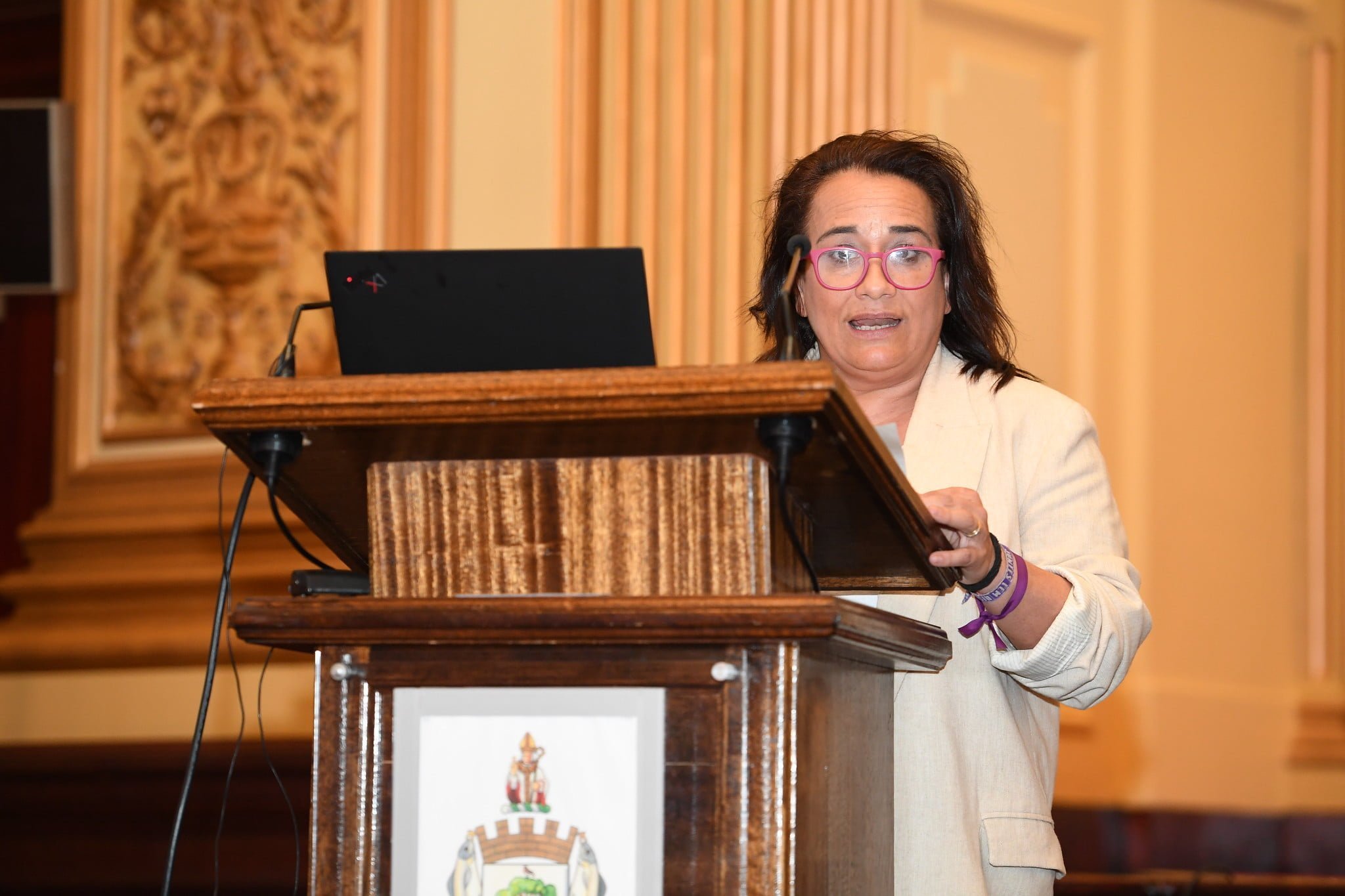
Rafaela Romero, Deputy Mayor of Gipuzkoa. Photo credit: Glasgow City Council
“Transport is the key link between opportunities and the resources available to citizens to make use of them,” she asserted, “It’s therefore essential for the public sector to guarantee a fundamental right to mobility.”
Eva Kail, the renowned Gender Planning Expert who placed Vienna on the map as the pioneer of gender-inclusive urbanism asserted that “A gender mainstreaming perspective is about broadening the way we look at the city, how we design it, and for whom,” Kail asserted.
“But often it is also about the small investments, making incremental- yet bold- changes which make a real difference in the city.”
Innovation for transformation
Over the last decade, urban mobility has been transformed by staggering technological innovations. But we cannot afford to be complacent, and as we go forward we must ensure innovation is policy responsive.
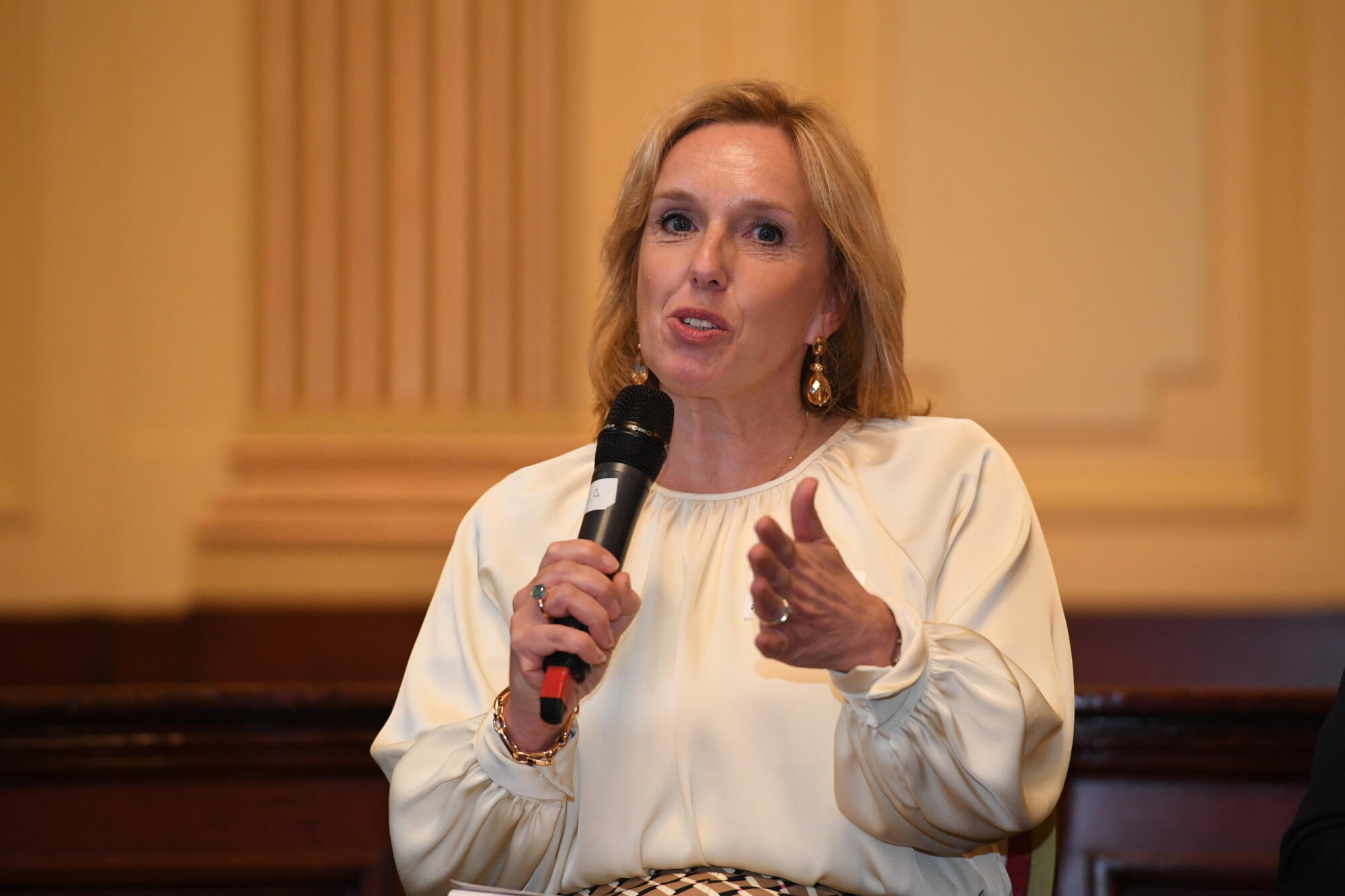
Suzanne Otters-Bruijnen, Regional Minister for Mobility, Internal Organisation and European Programmes for Province of Noord-Brabant. Photo Credit: GCC
“Business as usual is no longer an option, but at the same time, we need purpose-driven innovation,” said Suzanne Otters-Bruijnen, Regional Minister for Mobility, Internal Organisation and European Programmes for the Province of Noord-Brabant.
Achieving this was the core topic for the ‘Research & Innovation for Action’ workshop, which preceded the summit. POLIS joined UKRI and ERTRAC to convene a roundtable with leading academics and industry experts, exploring current trends in urban mobility R&I, how innovation can support policymakers and fostering EU-UK collaboration.
“Cities hold the keys, but it is difficult for them to understand which actions to take, and which will get the job done,” said Karla Jakeman, Innovate UK and Vice-Chair of ITS UK- speaking at the Research & Innovation for Action’ workshop, which preceded the summit- an event which convened leading academics and industry experts, to explore current trends in urban mobility R&I and fostering EU-UK collaboration.
So, what is next? Well, this was perhaps summed up best by Adam Tranter (quoting the king of rock and roll):
“A little less conversation a little more action!”
